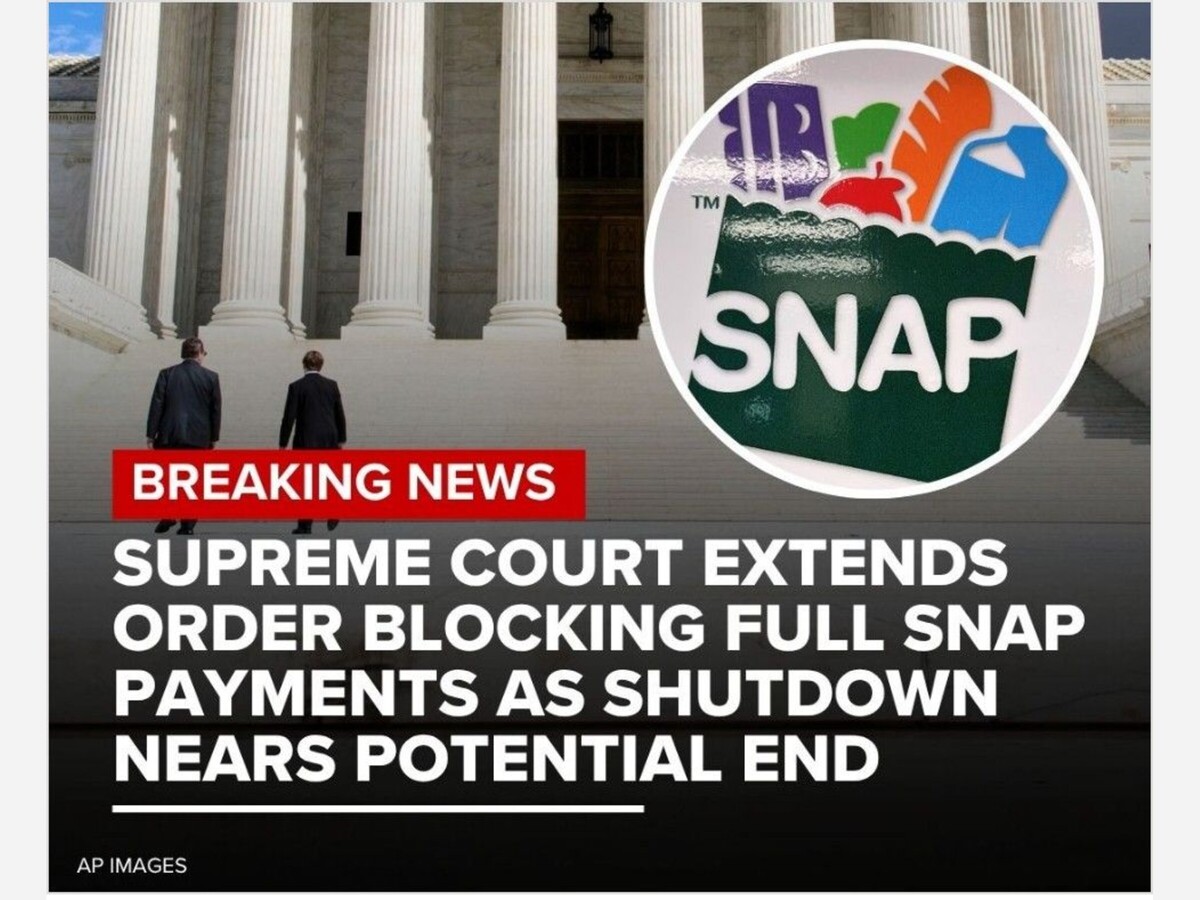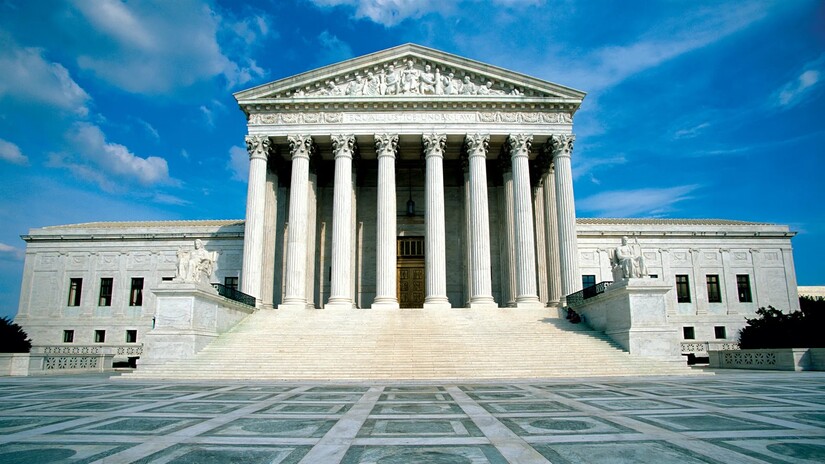Image


WASHINGTON, D.C. — The U.S. Supreme Court on Tuesday extended its temporary order blocking the full disbursement of Supplemental Nutrition Assistance Program (SNAP) benefits, prolonging uncertainty for millions of low-income Americans even as Congress moves closer to ending the protracted federal government shutdown.
The unsigned order continues a short-term administrative stay on a Rhode Island federal district court ruling that had directed the administration to restore full SNAP funding nationwide. That lower-court decision sought to compel the U.S. Department of Agriculture (USDA) to use other available funds to ensure uninterrupted food assistance for roughly 42 million Americans who rely on SNAP each month.

Under the Supreme Court’s latest action, the administrative stay will remain in effect until 11:59 p.m. Eastern Time on Thursday, November 13, buying time for Congress to finalize legislation to reopen the government and fully fund the program. Justice Ketanji Brown Jackson was the only justice noted as dissenting, signaling she would have denied the administration’s request and allowed full payments to resume immediately.
The high court’s decision maintains a chaotic, uneven landscape for SNAP beneficiaries nationwide. Several states—acting under the earlier district court ruling—had already disbursed full November benefits, while others have issued partial payments or delayed distributions pending further federal guidance.
The USDA, citing budgetary constraints under the continuing shutdown, advised states that those who issued full payments might need to reclaim or offset funds once federal appropriations are restored. Anti-hunger advocates and state administrators have warned that such reversals could deepen hardship for already vulnerable families, calling the situation “untenable” and “confusing for both states and recipients.”
At issue is whether, during a lapse in appropriations, the executive branch has legal authority to shift money from other nutrition accounts—such as school meals or child nutrition programs—to cover SNAP shortfalls. The administration has argued that such reallocations would overstep its legal authority and infringe on Congress’s constitutional control over federal spending.
The Supreme Court’s delay coincides with signs of movement on Capitol Hill. The U.S. Senate has passed a bipartisan bill to reopen the government and restore full SNAP funding. The House of Representatives is expected to vote on the measure as early as Wednesday, with White House officials indicating support for the compromise.
Should the bill reach the President’s desk and be signed into law, the federal government would reopen, and regular funding for SNAP—and other social programs—would resume immediately. That outcome would effectively render the pending court dispute moot and allow states to distribute the full November benefits without legal ambiguity.
Lawmakers and advocacy groups have underscored that ending the shutdown is the fastest and most equitable path to restoring stable food assistance. “Congress created the SNAP program to prevent hunger, not to allow millions of families to become collateral damage in a budget impasse,” said one policy analyst with the Center on Budget and Policy Priorities.
While the Supreme Court’s administrative stay is procedural rather than a ruling on the merits, its impact is tangible. Families across the nation are facing food insecurity, mounting anxiety, and reliance on food pantries as benefit interruptions ripple through local economies.
The ongoing legal fight underscores a deeper policy tension—between the executive’s ability to respond to humanitarian crises during funding lapses and Congress’s constitutional power of the purse. Until lawmakers finalize a spending bill, the court’s temporary extension keeps both the legal and humanitarian questions in limbo.
For now, the Supreme Court’s order ensures that SNAP recipients remain caught in a delicate balance between judicial restraint and legislative urgency, awaiting a resolution that could arrive as soon as the government reopens.